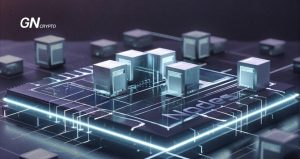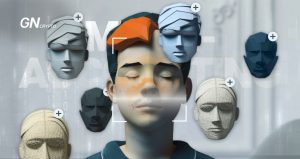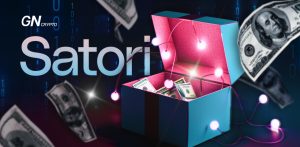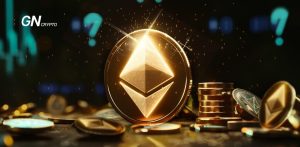Rostyslav Bortman: “ZK-rollups are a key trend for 2023”
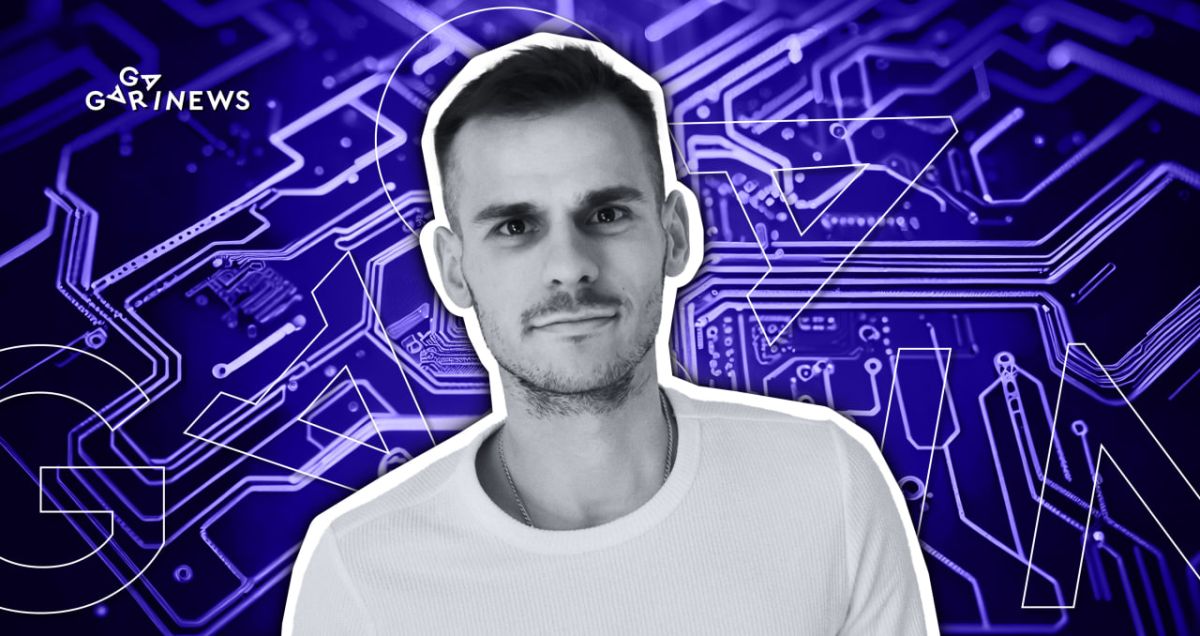
A number of successful blockchain projects developed by Ukrainians proves that Ukraine is one of the world’s most digitally advanced countries. What is the secret to our success? We got answers to this as well as other questions that trouble many crypto enthusiasts from a Ukrainian developer.
On this page
Rostyslav Bortman is the head of the blockchain department at IdeaSoft and the founder of Kyiv Ethereum Community.
GNcrypto: How did you come up with the idea for the Kyiv Ethereum Community, and what are your future plans for it?
Rostyslav Bortman: Towards the end of December 2021, I was finishing up a Solidity course that I had been teaching on the Sigma Software University platform. This was already my second Solidity course. We had close to 100 people in our chat who were interested in the Ethereum/EVM ecosystem and working on development in this programming language. At the last session of the second course, my students and I decided to meet at the Sigma Software office in Kyiv. While there, we realized that we all wanted a place where we could discuss Web3 topics that interested us and meet regularly. On the way home, I created a Telegram chat which I called the Kyiv Ethereum Community. Within a week, we had over 100 people in the group. It's been a year since then, and we've held numerous meetups, workshops, and a Web3 Startup Pitch Day. The community has now grown to over 550 members and is gradually expanding and evolving.
As for our plans, there are many in the works. We're looking to develop a website, improve the Telegram bot, organize meetups and workshops, and attract new partners and sponsors. Our next meetup is already planned for February 28th.
GNcrypto: Where can newcomers find information about becoming blockchain programmers? Which programming languages should they learn?
Rostyslav Bortman: Well, first of all, newcomers need to define what they mean by “blockchain programmer.” For example, there are developers of Ethereum Core who work on Ethereum clients such as Geth, Hyperledger Besu, Nethermind. There are also developers of smart contracts who work on code used in blockchains like Ethereum (or any EVM-compatible blockchain), Near Protocol, Solana, and so on. Additionally, there are developers who work on the frontend or backend of decentralized applications, or non-custodial wallets. All of these roles fall under the umbrella of blockchain developers. The first step is to decide which direction is of interest to you. You can try some basic courses in different areas, such as those offered on Udemy or Coursera, watch tutorial videos on YouTube, and practice a bit.
Now, let's say you've decided on developing smart contracts on EVM-compatible blockchains, using Solidity. Here's a summary of my recommendations for newcomers:
- Find local communities, groups, and news channels where people are working on the same thing, discussing industry news, and helping each other with technical questions. This will help you learn interesting things and communicate with like-minded people, which will also increase your motivation.
- Find a mentor who has already achieved results in your area of interest and can help you avoid mistakes you might make early on. Having someone to provide additional motivation and discipline can also be beneficial, as there will be someone expecting results from you.
- Look for specialized Solidity courses on YouTube, Udemy, or elsewhere. These can be online or offline courses (if they are available nearby).
- Practice a lot. Try to find or create tasks that could be real client orders. You can ask fellow developers or community members for suggestions. Of course, it's even better to have your own project that you develop using the same technologies and tools you would use in a real project.
- Try to find work. Create a resume and send it out with a cover letter for job vacancies. You will grow much faster in an environment of real projects, tasks, and more experienced colleagues.
GNcrypto: How much demand is there currently for programmers in the crypto industry? Is there room for juniors in this field?
Rostyslav Bortman: The Web3 industry currently faces a slight crisis, which is also related to the global economic downturn. We see tens of thousands of layoffs in both crypto companies (Coinbase, ConsenSys, etc.) and giants like Google, Amazon, etc. All these are experienced developers who are entering the job market and starting to look for work. In such times, companies and startups, of course, prefer to hire employees because they are cheaper and there are many of them on the market.
As for your question, there is demand. If you are an experienced Web3 developer, you will get a job quickly. However, if you are just starting out, you need to learn a lot on your own and find a company that is willing to teach beginners. Of course, when the market is contracting, there are fewer opportunities to teach someone. But don't be discouraged. Follow your goals, do what interests you, and you will definitely find your place.
GNcrypto: Ethereum's “Shanghai” update is scheduled to take place soon. What would it change? Will it affect the price of ETH?
Rostyslav Bortman: The main thing to know for most people is that the Shanghai upgrade includes EIP-4895, which allows users to unstake the ETH they have staked as validators. Thus, validators can theoretically queue to withdraw their coins from the system. However, some analysts consider this outcome unlikely due to Ethereum's dominance in the DeFi space and the high profitability of validator stakes.
Personally, I think we may see some local outflow of staked ETH in the first days or weeks after the update. However, soon everything will stabilize, and we will see growth in the number of validators again.
GNcrypto: In your opinion, what crypto trends might emerge in the near future?
Rostyslav Bortman: In my opinion, the biggest trend in 2023 will be L2 solutions based on zk-rollups. These are, of course, zkSync, zkEVM (Consensys), zkEVM (Polygon), Scroll, and others. I believe we will see tremendous growth of these ecosystems in the next 1-2 years.
Also, I think we will see a lot of interesting developments in the world of Web3, NFTs, and gaming in the next 9-12 months. In general, everything related to infrastructure for using NFTs will thrive in the next few years.
GNcrypto: Which second-layer solutions for Ethereum do you consider the most promising, and why?
Rostyslav Bortman: Optimism, Arbitrum, zkSync, zkEVM, Scroll.
With Optimism and Arbitrum, everything is straightforward: these are solutions that are based on Optimistic Rollups, which are technically sound, secure, and operational. For more than a year, Arbitrum and Optimism have been working and developing their ecosystems, so I believe they will continue to grow, as the difference in fees will not be as significant compared to zk-rollup solutions. It is worth looking at Binance Smart Chain, which should not be considered a blockchain at all. We have already seen cases of it being shut down at will. However, this does not stop people from using it because there is an ecosystem, users, and liquidity. However, in theory, zk-rollups should be more efficient.
GNcrypto: Are there any issues in the DeFi segment that still need to be resolved?
Rostyslav Bortman: I believe that there will always be issues that are yet to be resolved, no matter where you look.
Although DeFi is a relatively young segment, there are already some problems that need to be addressed:
Scalability: DeFi platforms still have limited scalability, as many of them operate on the Ethereum blockchain, which has limited throughput. This leads to high transaction fees and slow transaction processing during peak times.
Security: DeFi platforms are vulnerable to hacks and various types of attacks.
Lack of regulatory oversight: As DeFi platforms operate on the blockchain, their operations are not regulated by traditional financial authorities, which creates problems in protecting the rights of consumers and investors.
UX: Interacting with DeFi platforms can be challenging for those who lack sufficient experience in working with web3.
GNcrypto: Is there a future for algorithmic stablecoins, especially after the collapse of TerraUSD (UST)?
Rostyslav Bortman: The collapse of UST has created a lot of skepticism and fear among people about algorithmic stablecoins, just as FTX has caused many people to give up storing their funds on centralized exchanges in favor of non-custodial wallets. Have you heard the saying “not your keys, not your wallet”?
However, this does not mean that all centralized exchanges are bad, just as not all algorithmic stablecoins are unreliable. I think we will see successful implementations of algorithmic stablecoins in the near future.
GNcrypto: Many well-known crypto projects have been created by Ukrainian developers. What do you think is the reason for this? Why do Ukrainians have a knack for this and what contributes to this?
Rostyslav Bortman: Because Ukrainians are the most talented people 🙂
I think one reason is the desire to do something new, to find non-traditional ways, because many Ukrainians are already disappointed with existing systems and their imperfections.
In general, we are the most technologically advanced country in the world. Perhaps it is because we like to simplify our lives with technology and take advantage of the latest technologies and the use of them effectively.
GNcrypto: How difficult is it to create your own crypto project? Is it necessary to have investors for this?
Rostyslav Bortman: Creating any project is difficult, regardless of whether it is a crypto project or not. When you start creating something of your own, you always face dozens of questions and problems that you have not encountered before. It is super difficult, but it is also super interesting.
Regarding investors – of course not. It is not necessary to have investors at the beginning. If you have the opportunity to create an MVP on your own or finance the development yourself, that is the best option. You can also try to find angel investors to build an MVP and test the hypothesis. However, at this stage, you often have to share a large portion of the project, so if you have the opportunity, I recommend developing the MVP on your own.
There are many different opportunities now. For example, you can try to get a grant, enter a startup incubator, participate in Web3 Startup Pitch events (to start communicating with investors), and so on. In other words, there are countless options available in the modern world, so try it out and you will definitely succeed.
The content on The Coinomist is for informational purposes only and should not be interpreted as financial advice. While we strive to provide accurate and up-to-date information, we do not guarantee the accuracy, completeness, or reliability of any content. Neither we accept liability for any errors or omissions in the information provided or for any financial losses incurred as a result of relying on this information. Actions based on this content are at your own risk. Always do your own research and consult a professional. See our Terms, Privacy Policy, and Disclaimers for more details.

